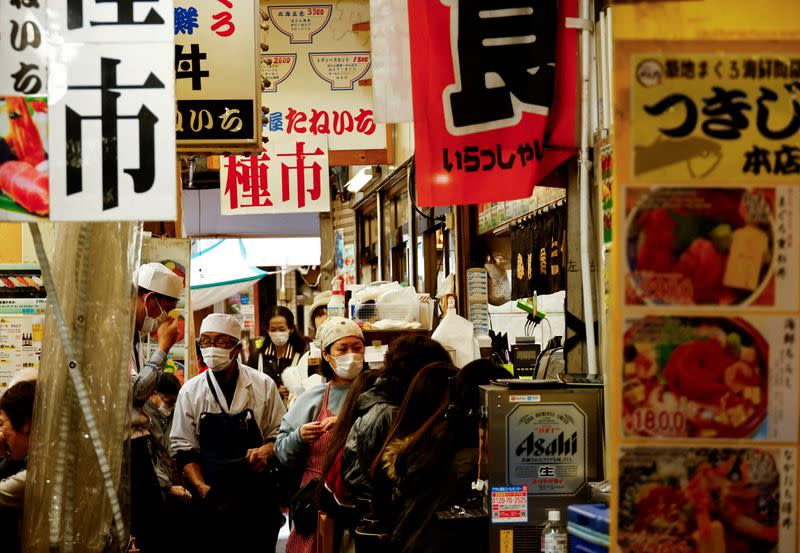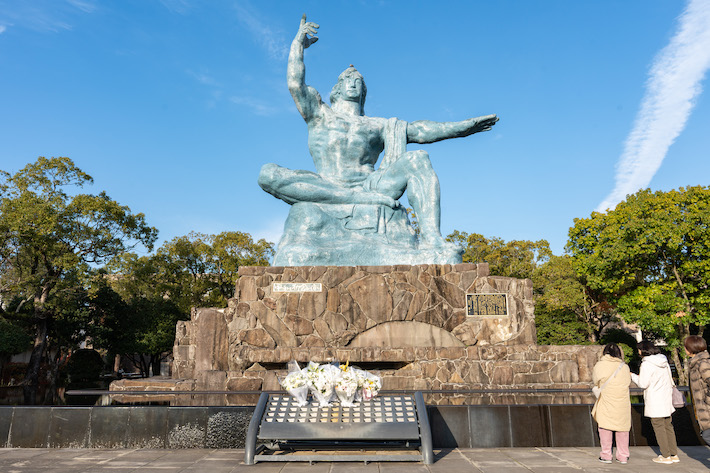The Bank of Japan issued an optimistic assessment at a quarterly meeting of regional managers on Monday.
It said wage hikes were broadening across the economy due to tight labour market. The news was an expression of confidence that the country was making progress toward achieving its 2% inflation target.
The BoJ’s assessment may heighten the case for the central bank to raise interest rates as soon as its next meeting at the end of this month, on July 30-31.
ALSO SEE: Stabbing Attacks in China Spur Fears of Social Tension – FT
Separate data showed Japanese workers saw their average base pay climb 2.5% in May, the fastest pace in 31 years, suggesting that broadening wage gains will give households more purchasing power and underpin consumption.
“Many regions reported that big firms’ big pay hikes in this year’s wage negotiations were spreading to small and medium-sized companies,” the BOJ said in a summary of discussions at the branch managers’ meeting.
The assessment compared with that of the previous meeting in April, when the BOJ said there were “hopeful signs” solid wage increases among big companies would spread to smaller firms.
Chronic labour shortage spurs wage rises
Some regional smaller firms decided to prioritise raising pay to retain or hire workers, even if they were not earning sufficient profits, the BOJ summary said, a sign of how Japan’s shrinking working-age population is intensifying a chronic labour shortage.
Many regions also saw companies passing on rising costs, or considering doing so, particularly those in the services industry, the BOJ said in the summary.
“We’re seeing wages rise not just among big firms but smaller ones,” Kazushige Kamiyama, the BOJ’s Osaka branch manager who oversees the Kansai western Japan region, said.
“For firms, higher wages mean higher costs. Some of them are starting to pass on the cost by raising service prices,” he told a news conference.
The central bank’s view on wage developments will be among key factors its board will scrutinise at this month’s policy meeting in setting interest rates as well as fresh quarterly growth and inflation projections.
BOJ Governor Kazuo Ueda has said wage hikes need to trickle down to smaller firms, and companies to begin charging more for services, before the central bank considers raising interest rates from current near-zero levels.
Many market players expect the BOJ to raise rates sometime this year, though they are divided on the timing.
In a sign of the BOJ’s optimism on consumption, the regional branch managers said household spending was “firm as a whole.”
Pick up in tourism, sentiment
A government survey released on Monday showed sentiment among service-sector firms, seen as a leading indicator of consumption, perked up in June for the first time in four months.
But the rebound was driven mostly by a surge in inbound tourism, which offset the thrifty spending of domestic households who were feeling the pinch from rising living costs.
“A few branches reported that rising inflation was prodding consumers to seek cheaper goods, particularly at supermarkets,” the BOJ’s summary said.
Household spending fell unexpectedly in May as higher prices continued to squeeze consumers’ purchasing power. While analysts expect real wages to turn positive in coming months, the yen’s recent decline could put upward pressure on import costs.
Core consumer prices in May rose 2.5% from a year earlier, staying above the BOJ’s target for more than two years.
Pay up at fastest pace in 31 years
Japanese workers saw their average base pay climb 2.5% in May – the fastest pace in 31 years as bumper pay hikes offered by companies in annual wage negotiations took effect, while part-time workers notched up some particularly strong gains.
But inflation-adjusted real wages fell for a record 26th straight month as a weakening yen and higher commodity prices pushed up the cost of imports, complicating the Bank of Japan’s (BOJ) efforts to normalise monetary policy.
Wages hold the key to how soon the central bank could raise interest rates. BOJ Governor Kazuo Ueda has said broad-based increases in pay must accompany rising prices for inflation to durably meet the bank’s 2% target.
“The data highlights Japan’s increasing wage momentum. While real wages continue to fall, they will likely start rising in July,” Yoshimasa Maruyama, chief market economist at SMBC Nikko Securities, said.
Nominal wages, or the average total cash earnings per worker, grew 1.9% to 297,151 yen ($1,850), accelerating from the previous month’s 1.6% gain to mark the highest year-on-year increase in 11 months.
But when adjusted for inflation, wages fell 1.4% in May after a revised 1.2% decline in April.
Meanwhile, hourly pay for part-time workers rose 4.0% in May from a year earlier, outpacing a 2.7% gain for full-time staff.
In one example of robust gains for part-time workers, the Hotel Mercure in Sapporo has raised its hourly pay for part-time workers by 15% on average this year, more than a 4% increase for its full-time workers.
“At this time of labour shortages, we need to offer high wages to attract part-time workers,” said Kiyohiko Bando, manager at the hotel.
Part-time workers make up 30% of Japan’s total workforce. They and other temp staff earn on average a third of salaried workers, according to Hisashi Yamada, a senior economist at Japan Research Institute.
“As wage hikes broaden to part-time workers, that will have a trickle-down effect on consumer spending by boosting their purchasing power,” he said.
- Reuters with additional editing by Jim Pollard
ALSO SEE:
Bank of Japan Seen Hinting at Rate Hikes Next Month
Akio Toyoda Re-Elected Toyota Chairman Amid Safety Test Scandal
Japan Spent Record $62 Billion in Failed Effort to Prop Up Yen
Inflation Indicators in Japan Drop Below 2% in April
Japan’s Kishida Pledges Reforms to Woo Foreign Investors
























